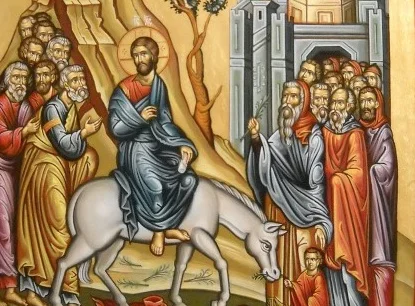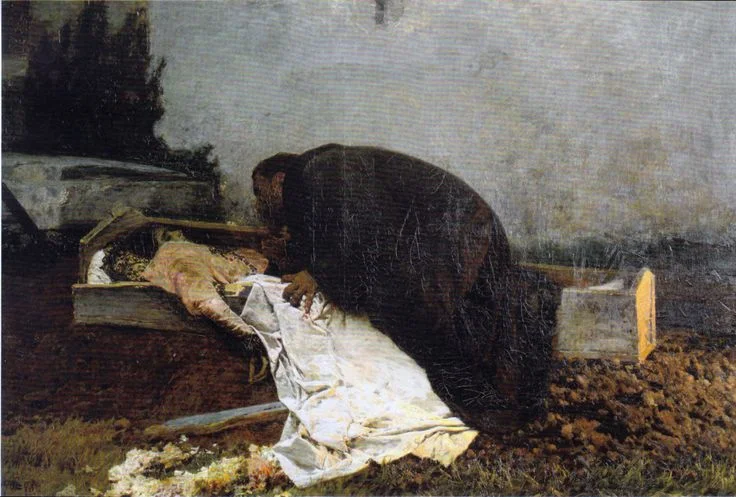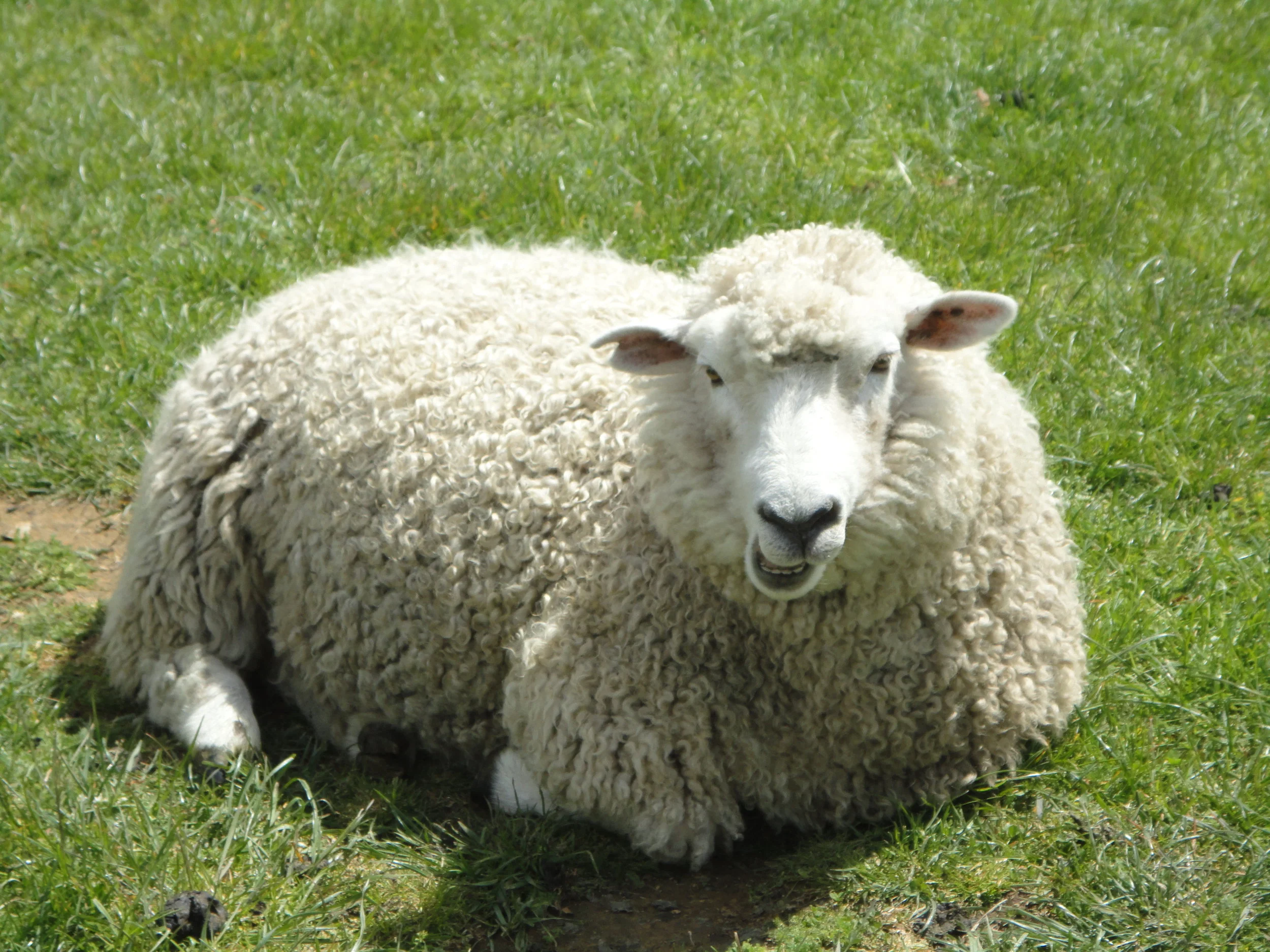Disclaimer: This Card Talk delves into the relationship between Jonathan, son of Saul, and his friend, brother-in-law, and possible lover, David. This is a long one, and this time we might actually piss off everyone. That’s not our intent, but we’ll see what happens.
Don’t have sex with your mother. She’s your mother. Don’t have sex with your mother. (Leviticus 18:7)
Dear reader: We believe you should not have sex with your mom/dad, stepmom/dad, sister/brother, half-sister/brother, stepsister/ brother, granddaughter/son, aunts/uncles, daughters/sons-in-law, sisters/brothers-in-law, and that it is a pretty safe bet that you should avoid poly-amorous relationships with members of the same family, or your own family. Apparently, so does the Bible.
Lusting After Lovers with Donkey Genitals and Horse Emission (Ezekiel 23:20) and Ezekiel’s Obsession with Pornographic Metaphors
Perhaps we should remember the women in the room when Ezekiel first uttered these words. They had been forcibly marched from their homes. They had watched their families die. Some had been raped by the Babylonians. How did they feel? Perhaps we should remember the women who read these texts today, the women in our churches and homes, whose current situations are not too dissimilar to the women in exile by the rivers of Babylon. They have enough reasons to weep.
Turning Fine Gold and Silver Jewelry into Gilded Dildos (Ezekiel 16:17) Or the Trouble with Prudish Translations
Ezekiel (misogynistically) took the metaphor of Jerusalem as an unfaithful wife to the extreme. For Zeke, Jerusalem's dalliances with other nations was like her measuring her lover's dick, taking the gifts her husband gave her, making dildos out of them, and then cumming to that instead of the man in bed with her.
Not Checking Out Hot Virgins (Job 31:1) Or What Happened to the Evangelical Brand?
The Bible's Odd Silence On Necrophillia
Adam wishing he had stuck with the sheep with "come-hither" looks (Genesis 3:12, Genesis 2:20)
Noah's Awkward Sexual Encounter with his Son. (Genesis 9:22)
Oh, the arguments over this card! At every testing of the game something came up: a footnote in a study bible, a blog entry from a renowned preacher, a comment remembered from a Bible college, an indelible image seared into brain tissue one Sunday morning by an overzealous youth pastor trying to connect with the congregation by spicing up the sermon. And then there is the shock, horror, and confusion of those who had never, no never ever, heard this debate before:
Should the phrase "saw the nakedness of his father" be understood as a sexual euphemism — that Ham committed some sexual act with/to his blackout-drunk father — or does the literal reading hold true — Ham looked at his father's naked body and called his brothers in to observe their father's shame?
Clearly we have chosen the former interpretation. ["But you guys chose that because it fits with your game better: Perverts!"] {You don't know us! Shut it!}
As others have argued both sides of this controversy from critical analysis of the format, analysis of the Hebrew language, and analysis of the cultural milieu of the text, we will only comment from a point of biblical comparison and answer the second most asked question about this text: if Ham was the one who did something wrong, why was his son, Canaan, cursed? (Especially since Canaan wasn't even born yet. [What?] Re-read Genesis 7:6-7 Noah, Mrs. Noah, Noah's sons, and Noah's daughter-in-laws. Nothing is mentioned about Noah's grandkids.)
A few chapters later we encounter another family saved in the nick of time by the hand of God, when everything around them is destroyed — when the land, people, fluffy bunnies, and cute little duckling are wiped off the face of the local map; however, keeping His word, God does not use water. He uses fire.
Lot and his daughters
In Genesis chapter 19 we are presented with the story of Lot, visiting angels, unwise sexual advances and promises, the destruction of Sodom and Gomorrah, and the ending of the story most Sunday school teachers aware of its existence, close the Bible on after declaring that homosexuality is wrong, God will kill you for it, or turn you into salt you look at it ["allelu, alleluia! Let's go eat some cake and sing about Jesus loving all the little children of the world in rainbow colors! Except the Canaanites. Screw their children."].
We will present this closing scene in its entirety:
Now Lot went up out of Zoar and settled in the hills with his two daughters, for he was afraid to stay in Zoar; so he lived in a cave with his two daughters. And the firstborn said to the younger, "Our father is old, and there is not a man on earth to come in to us after the manner of all the world. Come, let us make our father drink wine, and we will lie with him, so that we may preserve offspring through our father." So they made their father drink wine that night; and the firstborn went in, and lay with her father; he did not know when she lay down or when she rose.
On the next day, the firstborn said to the younger, "Look, I lay last night with my father; let us make him drink wine tonight also; then you go in and lie with him, so that we may preserve offspring through our father." So they made their father drink wine that night also; and the younger rose, and lay with him; and he did not know when she lay down or when she rose.
Thus both the daughters of Lot became pregnant by their father. The firstborn bore a son, and named him Moab; he is the ancestor of the Moabites to this day. The younger also bore a son and named him Ben-ammi; he is the ancestor of the Ammonites to this day. (Genesis 19:30-38, NRSV)
Here are the parallels between the stories of our two families in Genesis:
Both live among "sinful" people who are destroyed by the hand of God
Both are rescued as the remnant of (apparently) "righteous" people
Both fathers get blackout drunk after the destruction
Both fathers have something happen to them from the hands of their children while they are incapacitated (we argue that it is sexual in both stories)
Completing the pattern
Both stories go out of their way to name the descendants of the evil-doing children, who become the "bad guys" of the Hebrew narrative during the Exodus from Egypt and entry into The Promised Land.
Form Follows Function
Check the Ancient Near East map in your study Bible and then read through the biblical narrative: Who were the evil, nasty, no good, very bad people who needed to be utterly wiped out, so their land could be passed through and/or inhabited? The Cannanites (Ham's descendants), the Moabites (Unnamed daughter of Lot #1's descendants), and the Edomites (Unnamed daughter of Lot #2' descendants). So what does this have to do with sexual encounters?
These are tales of etiology: stories of origins, reasons, explanations. When the young Hebrews ask,
"why do we hate those people who look pretty much like us, sound pretty much like us, but only dress, eat and worship slightly differently than us, but live not that far away?"
the answer comes back from the text:
"Well my little one, a long time ago, the ancestors of those people did some nasty sexual things that I'll explain when you're older (because I'm afraid you might do them to me); they are people of, because they did things that you just don't do ever. Ever! So don't play with them."
In the Ancient Near East having some form of a sexual encounter with the patriarch of your family — your own father, who you are taking advantage of when he cannot defend himself — is beyond distasteful, beyond taboo. It is absolutely horrific. It is an abomination.It also serves as a great reason for why "we" would attempt the wholesale slaughter of "them" in the name of the Lord: that sort of evil trickles down from generation to generation, it's in the blood. Besides, they're living in the land we want.
This, combined with other arguments, lead us to say we don't know what Ham did, but it was freak nasty, not merely a look-see, inappropriate pointing, and calling of his brothers to gape with him. There was bad-touching involved.
But what do we know: we made this game, and you definitely think we're going to hell now.
Side note: Leviticus 18:7, which employs the same Hebrew phrase for "uncovered...nakedness," is used by the various sides in this debate. Alternately it has been used to argue that Ham had sexual relations of some kind with Noah, that he merely looked at his father's body, AND that Ham slept with Noah's wife (Yes, that would be his mother). But the question remains, which of those things would warrant the cursing of his descendant?
Levitical sex ban (Leviticus 18)
We assume many of you have seen 76 Things Banned in Leviticus which has made the internet rounds quite successfully. The creator has received some of the same criticism we have: someone just out to make fun of the Bible or to push a specific anti-Christian agenda.
While we can't speak for his/her intention, the creator does being the list with the following statement: "Unless you've never done any of them (and 54 to 56 are particularly tricky), perhaps it's time to lay off quoting 18:22 for a while?" This seems like a fair request: asking for the reader to check his/her own eyes for logs and sawdust before bringing an ocular inspection on another. (c.f. Matthew 7:1-6, there will be a Card Talk about that one later)
Our game has a card specifically about chapter 18 of Leviticus, with all its sexual austerity, so allow us to combine the efforts of "76 Things Banned" and A Game for Good Christians in this Card Talk.
From chapter 18 of Leviticus, "76 Things Banned" scandalously lists the following:
25. Having sex with your mother (18:7)
26. Having sex with your father's wife (18:8)
27. Having sex with your sister (18:9)
28. Having sex with your granddaughter (18:10)
29. Having sex with your half-sister (18:11)
30. Having sex with your biological aunt (18:12-13)
31. Having sex with your uncle's wife (18:14)
32. Having sex with your daughter-in-law (18:15)
33. Having sex with your sister-in-law (18:16)
34. Having sex with a woman and also having sex with her daughter or granddaughter (18:17)
35. Marrying your wife's sister while your wife still lives (18:18)
36. Having sex with a woman during her period (18:19)
37. Having sex with your neighbour's wife (18:20)
38. Giving your children to be sacrificed to Molek (18:21)
39. Having sex with a man "as one does with a woman" (18:22)
40. Having sex with an animal (18:23)
I've got to ask: how much of a problem do you have with this list?
Other than the heated words which will arise from #39, the issue of preferences for #36, and the inappropriate jokes associated with #40 and certain parts of the United States, who is really arguing that the rest are puritanical, sexually repressed laws? More importantly, why the hell are people listening to/agreeing with those people?
Are you really that anxious to sleep with your mother or granddaughter? Do you really want to take spiritual advice and/or biblical interpretation from the person who is?
A conversation about the passage's argued patriarchal slant is a fine point of debate,* but for the love of YHWH, let's shut up about how sexually oppressive Levitical sex laws are.
But what do we know: we made this game and you probably think we're going to Hell.
*Note on Levitical sex laws and patriarchy ~ The form of patriarchy called for in this passage of Scripture is for the express purpose of protecting women from being sexually subjugated by the men in the community. While this is not a "complementarian system", removing all traces of "women as property" claims (though other passages in the Bible do address that), it does express the idea that males in Hebrew society cannot merely claim any woman they want as their sexual property; furthermore, this is not, as some have argued, only based on the notion that the women are the property of another man. This rationale is clearly flawed, because in each of the hypothetical situations/relationships, the male in question could in fact be the patriarch over any of these classes of women, in the event a father, brother, uncle, (etc.) died. The prohibition is absolute, not conditional on who "owns" the woman.
“Ruth’s sexy time with a drunken relative” (Ruth 3:4-10a) & “Not being a whore, but wearing one's uniform.” (Genesis 38:12-23)
[A two for one Card Talk]
I. Ruth
Sex sells. In some cases, sex also buys. At least that was Naomi’s thought in chapter 3 of Ruth. Apparently there are times when you have to pimp out your daughter-in-law to one of your relatives to survive.
Naomi had a plan, a sexy, sexy plan: To lockdown Boaz, Naomi told Ruth to wash, put on her nicest clothes, wait until Boaz was blackout drunk, “uncover his feet,” lay beside him, and allow Boaz to tell her what to do (3:1-5). Let’s address the text itself and see all the thinly veiled sexiness therein.
1. First, “feet” is a euphemism for genitals evident in other biblical passages (cf. Ex 4:25, Judges 3:24, 1 Sam 24:4, Isaiah 6:2 and Isaiah 7:20. We know some of those will hurt your head), and the image of “uncovering” someone is similarly linked to sexuality (cf. Gen 9, Lev 18, Deut 22:30 and 27:20). So at the very least, Naomi ordered Ruth to lift Boaz’s robes, leaving his naughty bits exposed, and then to allow him to take things from there. I wonder what Naomi thought a sleepy, drunk, half-naked man would tell the beautiful woman lying next to him to do in the middle of the night, especially if she’s the one who made him half-naked in the first place.
It is also noteworthy that the text indicates that time passes between Boaz’s uncovering and his awakening, leaving one to wonder what exactly woke him: a series of gentle caresses; a stiff, cold wind across the threshing-floor; a callous flick in the balls from a feminine hand tired of waiting for him to wake up?
2. In any event when he awoke, Ruth did not wait for his direction. Instead, she takes charge of the situation. After completing the majority of the steps, including “uncovering his feet” and lying beside him, when Boaz jerks awake, she tells him to spread his robe (and all that was under it) over her. Not only can one read the only sexual position approved by good fundamentalist Christians in foreign lands into this, but also the cleverness of Ruth using Boaz’s words against him.
In 2:12 Boaz tells Ruth that she would find a reward once covered by the wings/robe {kanaph} of YHWH. In 3:9 she uses the same word when ordering Boaz to action: “…spread therefore thy skirt {kanaph} over thine handmaid…”. In essence she said, “You said YHWH would cover me, how about you cover me, big boy?” Which is all the more poignant as Boaz, by law and social custom, had a legal obligation to do just that, but more on that below. For now notice how Ruth’s clever word play simultaneously allured and shamed him into doing what he was supposed to in the first place.
3. The location of this event is also telling. At least one prophet saw the threshing floor as a place of naughty behavior (cf. Hosea 9:1-2). Perhaps Hosea was thinking of Ruth and Boaz specifically.
4. And what about Boaz having her wait until morning to depart his side: what happened for the rest of the night? Did they talk about the barley harvest? Or the pitfalls of interracial marriages in the ancient Levant? Probably not. (We won’t say anything about Boaz sending her off with a skirt-full of grain, which a cynical person might see as a form of payment for services rendered.)
5. All of the above is suggestive enough, but the most compelling element is stated in Ruth 4:12, which contains these final words of blessing bestowed upon Boaz and Ruth by the elders of the city:
. . . and, through the children that the LORD will give you by this young woman, may your house be like the house of Perez, whom Tamar bore to Judah.
This comparison of Ruth to Tamar, which is often overlooked by our more prudish brethren, is the topic of the second Card Talk in this two for one.
II. Tamar
Genesis 38 tells the story of Tamar. In summary, Tamar was married to Judah’s first son Er who pissed God off in some unspecified way and was smote, smitted, got smotten . . . was killed by God. At this point, Tamar was in the same position as Ruth for Hebrew law and custom dictated that when a women is left widowed, she was to be “redeemed” by a kinsman of her dead husband —a go’el. Some male relative was to marry her. (cf. Deut 25:5-6) In Ruth’s case, that was an unnamed relative who turned down the opportunity, and then Boaz, who was next in line. For Tamar, that duty fell to her brother-in-law, Onan.
However Onan, just like the unnamed “redeemer” in Ruth chapter 4, did not want his children being the heirs to his dead relative instead of himself as the custom required— all land, wealth and notoriety gained for/by the children, would be attributed to the lineage of the dead. But, unlike the unnamed character in Ruth, Onan still wanted to get his freak on. So he had sex with Tamar, but then pulled out to “spill his seed in the dust.” Of course God killed him too. (Gen 38:9. Of course we have a Canon Card about this verse too.)
Judah had a third son named Shelah who should have married Tamar, but fearing that she was a bad luck charm for his boys, Judah told Tamar that Shelah was too young to marry, and sent her back to her father’s house, with promises that he (Judah) would give her notice when Shelah came of age.
Years pass and Tamar has not been contacted by Judah about marrying Shelah. Hearing that Judah is travelling on business, she disguises herself and sits at the entrance to a town on the way to Judah’s destination. It just so happens that Judah’s wife had recently died and he was horny. Seeing the disguised Tamar, Judah assumes she is a prostitute, and kicks his old-school, mack-daddy, Hebrew-vibe at her, saying, “let me come into you,” promising her a young goat as payment (Gen 38:16-17).
Tamar, being a very clever woman, pretends she required collateral until she gets the goat: She takes his seal, its cord, and the staff in his hand. He handed them over, gave her what he had, and then she left. Later Judah sent a friend with the goat and to get his swag back, but the friend couldn’t find her. When he asked the townspeople, “where is the prostitute?” they looked at him like he was crazy: they didn’t have any prostitutes. What kind of a village did he think this was? When Judah hears this, he decides to cut his losses and drop the matter lest people mock him for getting rolled by a woman who wasn’t even a professional prostitute.
About three months pass and Judah receives word through the rumor mill: “Your daughter-in-law Tamar has played the whore; moreover she is pregnant as a result of whoredom.” To which Judah says, “Bring her out, and let her be burned.” (Gen 38:24) But Tamar had planned for this:
As she was being brought out, she sent word to her father-in-law, “It was the owner of these who made me pregnant.” And she said, “Take note, please, whose these are, the signet and the cord and the staff.” Then Judah acknowledged them and said, “She is more in the right than I, since I did not give her to my son Shelah.” And he did not lie with her again. (vs. 25-26)
{Drop the Biblical mic}
Why does the writer of Ruth include a comparison between these two women from the mouth the religious/social leaders of the community? Because it gives a picture of all they shared and had to overcome.
a. Both are introduced as barren women with dead husbands
b. Both are at the mercy of a patriarchal system of being “redeemed” by a go’el
c. Both are initially denied the appropriate protection of that system by men who were concerned about the inheritance of their own children (Onan & unnamed man)
d. Both are further effected by the indifference of another male relative who could and should have stepped in sooner (Judah & Boaz)
e. Both used their intellectual prowess and sexuality to get that which they were already entitled.
There is no shame in Ruth or Tamar’s game. Nor should there be. They did what they had to do and were praised for it in the end. Doesn’t seem like God is condemning them, so why should we?
Perhaps, instead, we should focus on the selfish attitudes of the men in the stories who did not live up to their moral, social, and spiritual obligations.
Perhaps Good Christians (and the rest of the world) should spend some time addressing systems of oppression, especially systems were ostensibly constructed to protect our fellow persons, which are not working.
But what do we know: we made this game and you probably think we’re going to Hell.
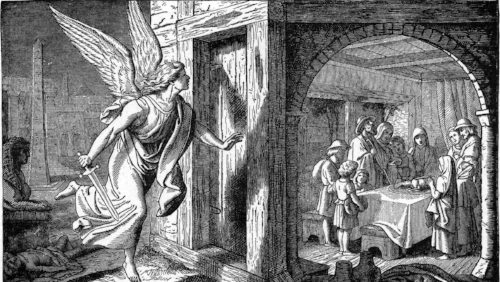
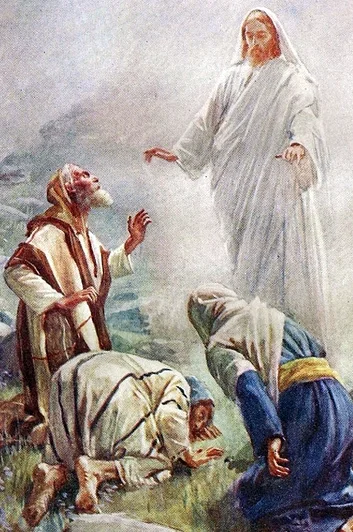

![O Come, O Come Emmanuel (Isaiah 7:14) [An Advent Card Talk]](https://images.squarespace-cdn.com/content/v1/55a9a1e3e4b069b20edab1b0/1483161046976-X5VJE3CMP9T957O72EII/3d-wallpapers-light-dark-wallpaper-35822.jpg)
